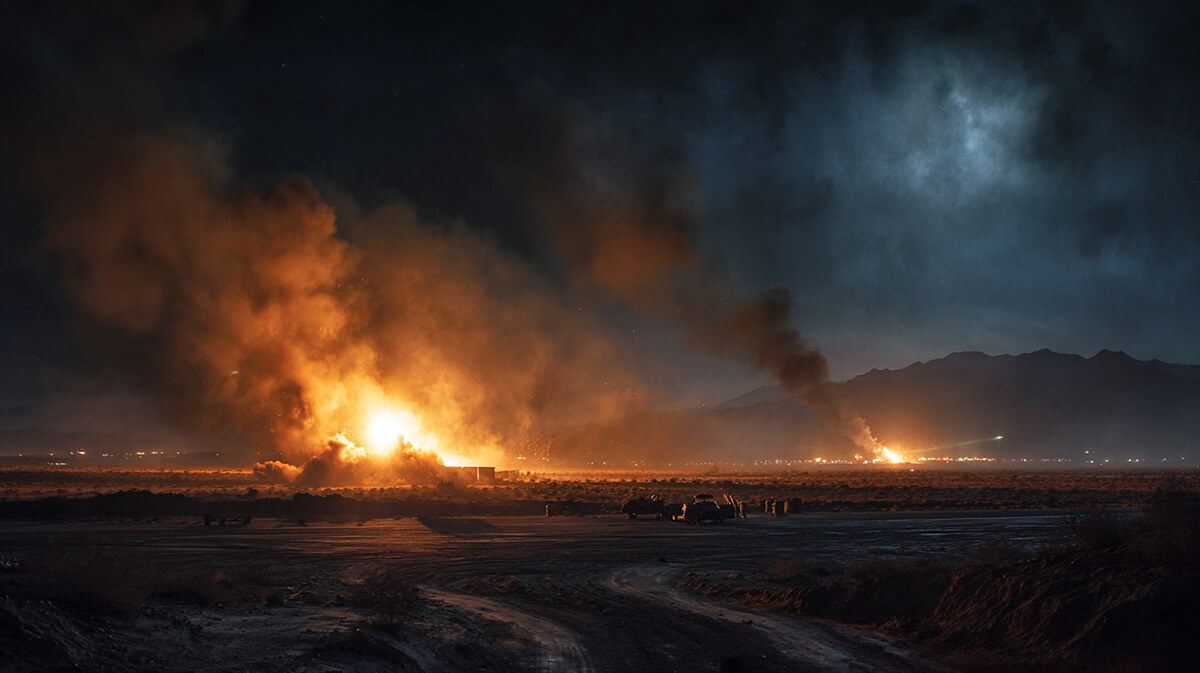
A History of Growing Tensions Culminates in Direct Action
The recent U.S. airstrikes on Iranian nuclear sites on June 22, 2025, represent a dramatic escalation in a long and complex history of antagonism between Washington and Tehran. For decades, the relationship has been fraught with mistrust, punctuated by Iran’s pursuit of a nuclear program and its perceived destabilizing activities in the Middle East. Concerns over Iran's nuclear ambitions intensified following revelations of undeclared nuclear activities and a consistent push by the international community to prevent the nation from developing nuclear weapons.
The 2015 Iran nuclear deal, formally known as the Joint Comprehensive Plan of Action (JCPOA), aimed to curtail Iran's nuclear program in exchange for sanctions relief. However, the Trump administration withdrew from this agreement in 2018, arguing it was insufficient to prevent Iran from eventually acquiring nuclear weapons and failed to address its ballistic missile program or regional proxy activities. This withdrawal, coupled with the re-imposition of stringent sanctions, significantly ratcheted up pressure on Iran, which in turn began to incrementally breach the terms of the original nuclear accord.
Over the past years, both nations have engaged in a series of tit-for-tat actions, including attacks on shipping, drone incidents, and cyber warfare. The stated U.S. policy under the current administration has been one of "maximum pressure," aiming to compel Iran to negotiate a more comprehensive agreement. The decision to strike Iran’s nuclear facilities directly signifies a sharp departure from previous strategies and marks a critical turning point in this protracted geopolitical standoff.
"President Trump's display of peace through strength today ensures America's security and demonstrates unwavering resolve against nuclear proliferation. A new era of deterrence has begun." - Whitehouse Statement
U.S. Unleashes "Midnight Hammer" on Iranian Nuclear Infrastructure
In the early hours of Saturday, June 22, 2025, the United States launched what officials reportedly termed "Midnight Hammer," a series of precision airstrikes targeting key elements of Iran’s nuclear infrastructure. The primary objectives included the Fordo nuclear enrichment facility, a deeply buried site built into a mountain, and the Natanz complex, Iran's largest uranium enrichment plant. Additional strikes also reportedly hit research reactors and laboratories near Isfahan, a significant hub for Iran's nuclear activities.
Reports from CNN indicated that the U.S. likely deployed "bunker buster" munitions, specifically designed to penetrate hardened underground facilities like Fordo. This suggests a calculated effort to inflict maximum damage on facilities previously considered immune to conventional attacks. President Donald Trump addressed the nation shortly after the strikes, asserting that Iran's nuclear capabilities had been "totally obliterated." Pete Hegseth echoed this statement, proclaiming that Iran’s nuclear capabilities were "obliterated" following the U.S. strikes. A retired general, speaking on CNN, expressed confidence that Iran's nuclear program was no longer a threat after the "massive U.S. strike," suggesting a significant blow to Tehran's nuclear aspirations. The White House framed these actions as a clear demonstration of "peace through strength," aimed at deterring further Iranian nuclear development and ensuring regional stability.
"Iran's nuclear capabilities are obliterated after U.S. strikes. This is what true strength looks like." - SECDEV Pete Hegseth
The U.S. administration’s rationale for the strike, as implied by official statements and various news outlets, centered on preventing Iran from developing nuclear weapons. The "why" behind the specific timing and targets likely stems from intelligence assessments suggesting Iran was either nearing a critical threshold in its nuclear program or had taken actions that the U.S. deemed unacceptable and requiring immediate, forceful intervention.
Iran Retaliates, Sending Missiles Towards Israel
The U.S. strikes were met with swift and direct retaliation from Tehran. Within hours of the American operation, Iran launched a significant barrage of missiles targeting various locations in Israel. Sirens blared across multiple Israeli cities, signaling incoming threats, as rescue services and media outlets quickly reported at least 20 people injured. Al Jazeera provided breaking news coverage, detailing Iran's missile attack on Israel, which wounded dozens. This immediate response underscores Iran's stated commitment to defending its sovereignty and its capacity to project power within the region.
"The US attacks betrayed diplomacy. Iran warns of severe consequences and maintains the right to respond comprehensively." - From an Iranian official (as per Al Jazeera)
An unnamed Iranian official, quoted by Al Jazeera, strongly condemned the U.S. actions, stating, "The U.S. attacks betrayed diplomacy. Iran warns of severe consequences and maintains the right to respond comprehensively." This statement highlights Iran's perception of the strikes as a violation of international norms and a betrayal of any prior diplomatic efforts, even those that had been strained or broken. The official further warned that "many targets" remained for retaliation, indicating a potential for sustained or further responses. The Israeli ambassador to the U.N., speaking at the Security Council, condemned what he termed Iran's "hypocrisy" regarding its nuclear program and its aggressive actions, placing the blame squarely on Tehran for the escalation.
Global Reactions and the Path Forward
The international community's response has been swift and varied, reflecting the profound concern over the potential for a wider regional conflict. Qatar, a key regional player, immediately issued a stark warning about "dangerous tensions," stating that the U.S. strikes on Iran could lead to "catastrophic repercussions." This sentiment was echoed by numerous world leaders, whose reactions were compiled and reported by The New York Times, highlighting global apprehension regarding the crisis.
Domestically, the strikes have further entrenched existing political divisions within the United States. While Republican leaders generally rallied in support of President Trump’s decisive action, emphasizing national security and a strong deterrent posture, Democrats expressed reservations. CNN reported on the bipartisan briefings that followed the strikes, noting the differing concerns. Figures like Senator Bernie Sanders reacted to the strikes in real-time, though his commentary tended to focus on broader political themes rather than a direct endorsement or condemnation of the military action itself. Some critics have also questioned the legality of the U.S. strikes, describing them as "grossly unconstitutional," raising debates about executive authority in initiating military action without explicit congressional approval.
As live updates from major news organizations like the Associated Press, CNN, Fox News, BBC, and Reuters continue to track minute-by-minute developments, the situation remains highly fluid. An ex-U.S. diplomat involved in Mideast negotiations provided a glimmer of hope, suggesting there might still be a chance for future diplomatic engagement despite the severe escalation. The long-term implications of these strikes – for Iran's nuclear program, for regional stability, and for global energy markets – are still unfolding, ensuring that this crisis will remain a central focus on the international stage.
Sources: The Associated Press, MSNBC, CNN, Fox News, Al Jazeera, White House, BBC News, Reuters, Deutsche Welle (DW), The New York Times.






